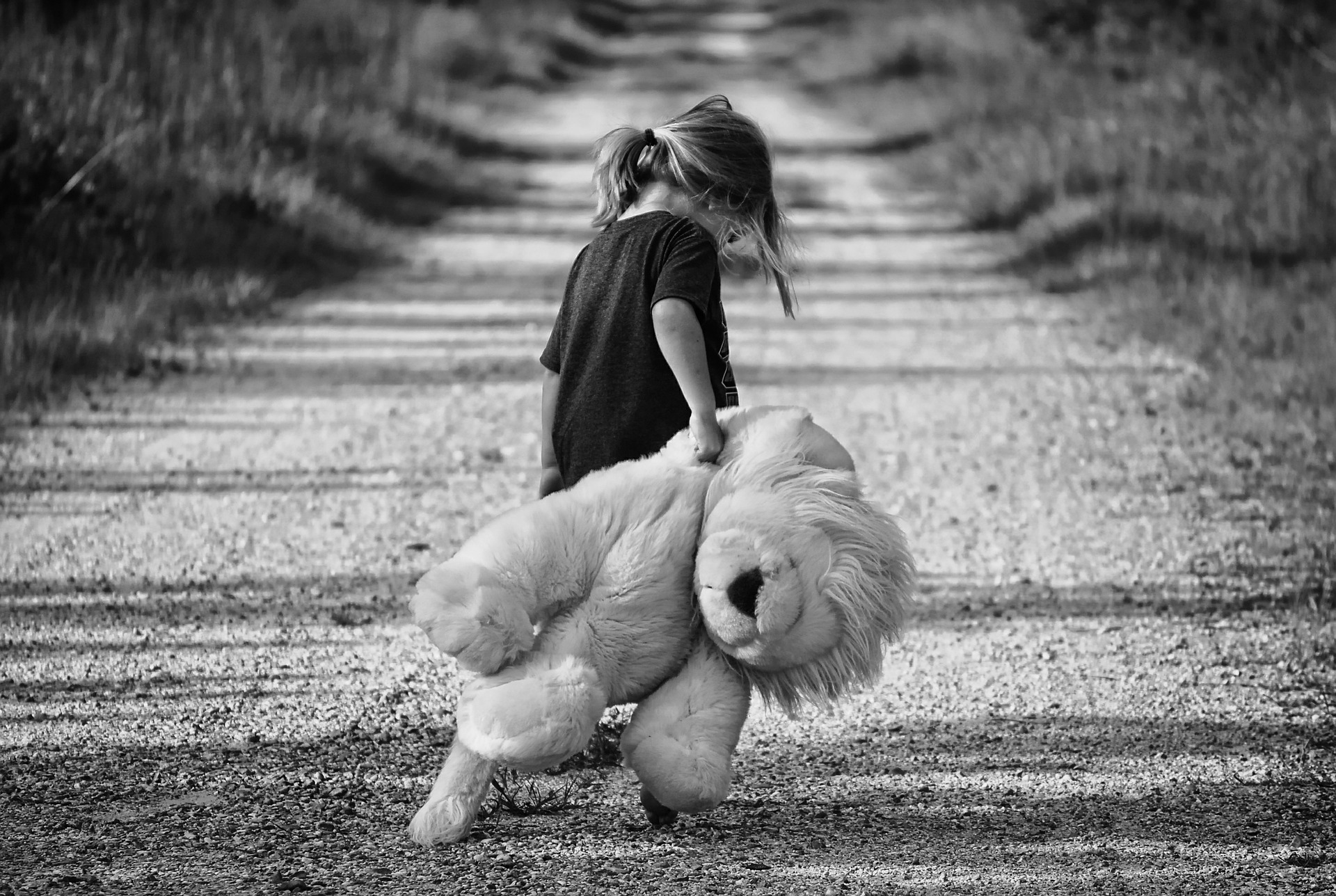
Louiza Theophanous,
Counseling Psychologist
Domestic violence is an aspect of violence in society. Thus, domestic violence is not a personal or family mater but a social problem consernig all of us (Association for the Prevention and Handling of Violence in the Family)
Violence and abuse in the family is an ever existing phenomenon which in recent years has become more evident and noticeable through the rise of official reports and complaints. Important aspects in preventing cases of domestic violence is public and proffessional awareness about what consist domestic violence. In this aspect i have concluded after a careful study of the literature to the following definition of domestic violence and the different aspects of violence and abuse.
Violence is every behavior through which a stronger member of a family (either physically stronger/ verbally, socially or financially – usually a spouse or a parent) enforces – physically, verbally, emotionally, socially, financially or sexually – on the weaker part, neglects or oppresses, showing lack of respect and taking advantage of his/her position as an excuse to mistreat weaker people (intentionally or not). The consequences of such a behavior on the victims can be short termed or long termed, psychological, physical or sexual and varying from mild to very serious.
The terms of violence and abuse are usually used interchangeably. I see use in distinguishing them though, since research and clinical experience show they are different extentions and consequences depending on the frequency and intensity. For example, a receiver of one insidence of physical abuse feels differently than a receiver of multiple insidences of physical abuse. Thus, i use the term violence to describe rare events of behaviors such as those described above and the term abuse to describe a repeated cycle of these behaviors.
Violence can take a passive or active form. Active violence consists of behaviors and refers to secual, physical and psychological violence, whereas passive violence refers to neglect and usually referred on physical and/or emotional neglect.
In this context the following types of violence and abused are observed in he family. Sexual abuse: Includes rape, incest and any form of sexual harassment and violation imposed on the victim against his/her will and/or awareness, or when consent is obtained through psychical or psychological intimidation and the perpetrator exploits the victim’s need for attention and contact with a parent or spouse. In addition it includes a child’s exposure to pornographic material and prostitution.
Neglect: It refers to passive violence that can be physcal and/or psychological. Physical neglect is when the parent is depriving the child of basic physical needs such as nutrition, medical care, a safe house to live and protection from various risks (depending on the age and capacity of a child for self – care and self – protection). Psychological neglect is when a parent deprives the child of their basic emotional and educational needs such as tenderness, attention, support, education and professional opportunities that they can offer. The most serious form of neglect (both physical and psychological) as a form of abuse is the abandonment of a child or teenager.
Physical abuse: It refers to repeated physical abuse or intimidation and includes mild to severe bodily attacks the can cause physical pain, scratches, bruises, burns and other injuries to the victim which may result in permanent bodily injuries or even to death. A few examples of physical abuse between parents or spouses who physically abuse members of their family are pushing, jerking, home lockout, slapping, strangling, burns and use of sharp items or tools such as belt, chair ect to hit the victim. Physical abuse is always accompanied by emotional abuse.
Psychological abuse: It includes repeated behaviors of emotional misuse and usually accompanies the other forms of abuse, while this form is the hardest to detect and its the reason why usually the the victims receive of less understanding and help. For easier detection and understanding of psychological abuse i am splitting it 5 categories: verbal, emotional, social, financial and overprotection/ overbearring.
The verbal – psychological abuse includes direct and indirect verbal attacks. Direct verbal attacks are characterized by various expressions that directly impart devaluation, criticism and rejection of the victim, such as insult, insults and threats. Some examples are: “If you come back home late, I’ll throw you out / I’ll hit you”, someone calling a child stupid, evil, ungrateful, insidious, bastard, psychopath, prostitute, useless, unable to achieve anything in life and unwanted, for example “No one wants you” or “I wish I never gave birth to you”. Indirect verbal attacks imply what is said directly in direct verbal abuse. They refer to the use of various expressions against the victim that convey “hidden” messages such as threats, offensive remarks, critisism and other comments that aim at provoking guilt and implying rejection of the victim. Examples of such attacksare the use of comparisons such as “you are not as smart as your sister”, telling your child “you like to hurt people”, “I ‘ll die before my time because of your behaviour” ext. In addition, remarks such as “sometimes i wonder if you are a psychopath”, “only prostitutes act the way you act”, “You make me so mad i might kill you because of them”. In all the previous examples things are implied and not directy stated which is usually the component causing confusion in the victims and to those who try to help them. Parents/ spouses usually explain such indirect verbal attacks as mere facts, while the victim feels reduced, offended and experiencing feelings of guilt and rejection. However, having someone stating a fact or providing some advice has a different setting and concequences to the recipient, namely the choice of words, voice tone, facial expressions, gestures, the look and other traits of non – verbal communication are different in these situations and as a result the recipient does not receive them as insults or rejection. Often too, such statements do not really correspond to reality or provide a distorted picture as it is in the interest of the perpetrator to appear.
Emotional – psychological abuse usually coexists with verbal abuse, but it can also appear on its own. It includes repetitive emotional abusive patterns mainly expressed by the non – verbal communication elements mentioned above, such as speaking to a child with aggressive, threatening or degrading style and tone (even if the words do not transmit directly or indirectly threats, critisism or rejection). For example, a parent can the child “I hope you pass your examinations” in such a way that essentially what is saying is “you are very dumb and unable to pass your examinations”, or use ironic looks or facial expressions. A parent could also tell his child “I want to chat with you” using such an aggressive attitude with his body and gestures that basically what he says is “Shut up and hear what I have to say.” Other behaviors that can be considered as emotional violence are the monitoring of violence on other people (such as children witnessing violence among their parents), persecution from home, humiliation, making revelations about a child unsuitable for his age and silent treatment (punishment by not talking to his child prolonged because he was angry with him).
Η κοινωνική – ψυχολογική κακοποίηση περιλαμβάνει συμπεριφορές που στοχεύουν και / ή καταλήγουν στην κοινωνική απομόνωση του θύματος, αποτρέποντας το από το να αναπτύξει και να διατηρεί στενές σχέσεις με άλλους ανθρώπους. Τέτοια παραδείγματα γονεϊκής κοινωνικής – ψυχολογικής κακοποίησης περιλαμβάνουν το να λέει κάποιος στο παιδί του πράγματα όπως: «μόνο οι γονείς σου σε αγαπούν, οι άνθρωποι είναι κακοί, μόνο τους γονείς σου πρέπει να εμπιστεύεσαι, ο κόσμος είναι επικίνδυνος, ότι συμβαίνει σε αυτή την οικογένεια (συμπεριλαμβανομένης της κακοποίησης) είναι οικογενειακό ζήτημα και δεν πρέπει να μιλάς σε κανένα γι’ αυτό». Περιλαμβάνονται επίσης συμπεριφορές που μεταδίδουν παρόμοια μηνύματα και καλλιεργούν εξάρτηση από το θύτη και φόβο να εμπιστευτεί το θύμα άλλους ανθρώπους.
Η οικονομική – ψυχολογική κακοποίηση αποτελείται από συμπεριφορές που στοχεύουν και / ή προκαλούν την πλήρη οικονομική εξάρτηση του θύματος από το θύτη. Περιλαμβάνει επίσης το να χρησιμοποιεί κάποιος τον οικονομικό παράγοντα ως ένα τρόπο να ελέγξει τη συμπεριφορά του θύματος και να του προκαλέσει ενοχές. Οι γονείς που κακοποιούν ψυχολογικά τα παιδιά τους σε οικονομικά θέματα τείνουν να μην τα αφήνουν να εργαστούν ή αλλιώς να τα αποτρέπουν από το να το κάνουν, να χρησιμοποιούν το χρήμα ως ένα τρόπο να τιμωρήσουν και
να ελέγξουν τα παιδιά τους και συνήθως ελέγχουν τον τρόπο που ξοδεύουν τα χρήματα τους, π.χ. απαιτούν να γνωρίζουν πώς ακριβώς ξοδεύουν κάθε μικροποσό ή τους απαγορεύουν να τα ξοδεύουν με συγκεκριμένους τρόπους. Τέλος, τέτοιοι γονείς συχνά προκαλούν ενοχές στα παιδιά τους για τα χρήματα που τους δίνουν, π.χ. «αν δεν ξόδευα τόσα λεφτά πάνω σου, θα ζούσα πιο άνετα και ευτυχισμένα, στερούμαι χρήματα εξαιτίας σου, για να σε μεγαλώνω και να σε σπουδάζω».
Η υπερπροστασία ως μια μορφή κακοποίησης στην οικογένεια αναφέρεται σε καταπίεση που περιλαμβάνει υπερβολική και αχρείαστη προστασία ή έλεγχο του παιδιού / εφήβου / νεαρού ενήλικα, κάτι που μπορεί να καταλήξει σε δυσκολία του παιδιού να γίνει ένας ενήλικας ικανός να αναλαμβάνει ευθύνες και να παίρνει τις δικές του αποφάσεις. Χαρακτηριστικές συμπεριφορές των γονιών που καταπιέζουν (υπερπροστατεύουν) τα παιδιά τους είναι: Τους απαγορεύουν να βγαίνουν έξω ή τους αφήνουν σπάνια σε σχέση με το πόσο συχνά βγαίνουν τα περισσότερα άτομα της ηλικίας τους, κρυφακούν τις προσωπικές ή τηλεφωνικές τους συνομιλίες, ψάχνουν τα
προσωπικά τους αντικείμενα ή διαβάζουν το ημερολόγιο τους, ή εμπλέκονται στην προσωπική τους ζωή με οποιοδήποτε άλλο ακατάλληλο τρόπο, π.χ. λένε στους φίλους τους να σταματήσουν να κάνουν παρέα μαζί τους. Άλλα παραδείγματα αποτελούν το να επιβάλλει κανείς στο παιδί του τις επιθυμίες του σε θέματα προσωπικής επιλογής (όπως η επιλογή κλάδου σπουδών ή επαγγελματικής καριέρας) και άλλες συμπεριφορές που παραβιάζουν τον προσωπικό χώρο του θύματος. Η καταπίεση μπορεί να υπάρχει και από μόνη της χωρίς την υπερπροστασία, όπως συμβαίνει στην περίπτωση ανάθεσης ευθυνών στο παιδί που δεν του αναλογούν ή στις οποίες δε μπορεί να αντεπεξέλθει. Αυτές μπορεί να είναι πρακτικές, π.χ. εξαναγκασμός σε οικιακή ή άλλη εργασία που η ηλικία του δεν το καθιστά ικανό να κάνει ή δυσανάλογα πολλή και σκληρή σε σχέση με αυτή που κάνουν τα υπόλοιπα μέλη της οικογένειας, ή ψυχοσυναισθηματικές, π.χ. ένα παιδί να καθίσταται υπεύθυνο για την επίλυση συγκρούσεων μεταξύ των γονιών του και άλλων προβλημάτων.
Είναι σημαντικό να γνωρίζουμε ότι ένα μεμονωμένο επεισόδιο δε συνιστά κακοποίηση στην οικογένεια, όπως προαναφέρθηκε, αλλά και ότι οι προθέσεις του θύτη συχνά όχι μόνο δεν είναι κακές αλλά είναι καλές, αφού σπάνια συναντά κανείς γονείς ειδικά που θέλουν εσκεμμένα να βλάψουν τα παιδιά τους. Κατ’ επανάληψη συμπεριφορές όμως όπως οι πιο πάνω συνιστούν κακοποίηση, κάτι που είναι σημαντικό να αναγνωρίζεται τουλάχιστο από τα θύματα και τα άτομα που τους περιβάλλουν, αφού σπάνια αναγνωρίζεται από τους ίδιους τους θύτες. Οι συνδυασμοί συμπεριφορών όπως οι πιο πάνω, η σοβαρότητα / ένταση και η συχνότητα της επίθεσης καθορίζουν το είδος και τη σοβαρότητα της κακοποίησης που υπάρχει, κάτι που βοηθά στη σωστότερη αντιμετώπιση της. Είναι σημαντικό πάντως να κατανοήσουμε πως σε κάθε περίπτωση η κακοποίηση είναι κακοποίηση και πληγώνει, ανεξαρτήτως μορφής και έντασης, γι’ αυτό και πρέπει πάντοτε να λαμβάνεται σοβαρά υπόψη.
Ενδεικτικά αναφέρονται μερικές συνέπειες της κακοποίησης που έχουν κατοχυρωθεί επανειλημμένα μέσα από διεθνείς έρευνες: κατάθλιψη, χρόνιο άγχος, αυτοκτονία, εγκληματικότητα, κατάχρηση αλκοόλ, ναρκωτικών και ψυχοφαρμάκων, ανορεξία, ψυχοσωματικές διαταραχές, μανιοκατάθλιψη, σχιζοφρένεια, προβληματικές σχέσεις,
εγκατάλειψη σχολείου και εργασίας, αίσθημα κενού, μοναξιάς και αποξένωσης, χαμηλή αυτοεκτίμηση, καχυποψία, ενοχές, ντροπή, σεξουαλικά προβλήματα και πολλά άλλα.
Έχει διαπιστωθεί ότι οι συνέπειες πάνω στα θύματα είναι συχνά οι ίδιες ανεξάρτητα από τη μορφή ή μορφές κακοποίησης που έχει υποστεί ο καθένας και χρειάζεται συνήθως εντατική ψυχοθεραπεία και ψυχολογική στήριξη από άλλα άτομα ούτως ώστε να μπορέσει κάποιος να ξεπεράσει τις τόσο τραυματικές συνέπειες.


 Ελληνικα
Ελληνικα




